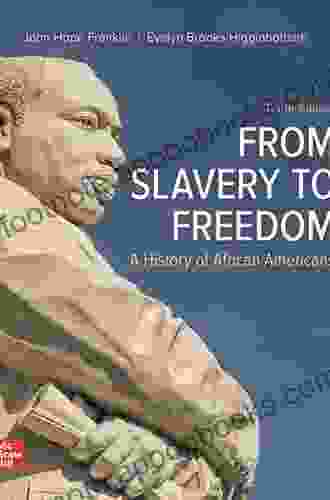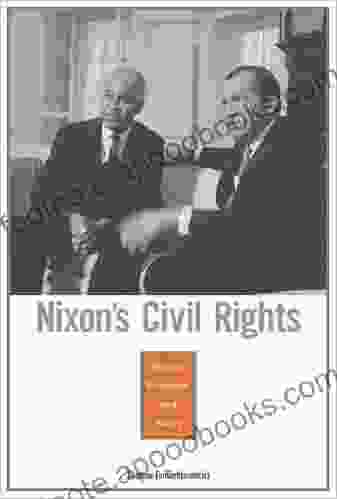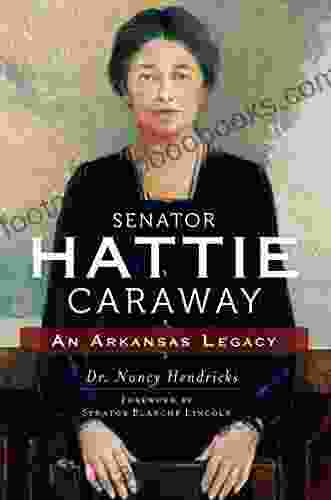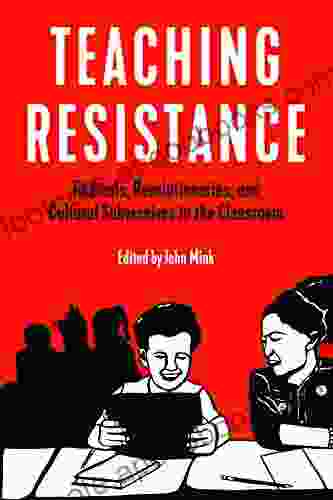Nixon's Civil Rights Politics: Principle and Policy

Richard Nixon's presidency was a complex and controversial one, marked by both triumphs and failures. His approach to civil rights was no exception. Nixon was a Republican president who came to office in 1969, at a time when the nation was still struggling to come to terms with the legacy of slavery and segregation. The civil rights movement had made great strides in the 1950s and 1960s, but much work remained to be done.
5 out of 5
| Language | : | English |
| File size | : | 3544 KB |
| Text-to-Speech | : | Enabled |
| Screen Reader | : | Supported |
| Word Wise | : | Enabled |
| Print length | : | 416 pages |
Nixon's approach to civil rights was shaped by a number of factors, including his personal beliefs, his political ambitions, and the political climate of the time. Nixon was a conservative who believed in law and Free Download, but he also believed that the federal government had a role to play in promoting equality. He was also a pragmatist who was willing to compromise in Free Download to achieve his goals.
As a result of these factors, Nixon's civil rights policies were often contradictory. He took some steps to advance civil rights, such as increasing funding for minority businesses and appointing more African Americans to government positions. However, he also took steps that were seen as setbacks for the civil rights movement, such as opposing busing and affirmative action.
Nixon's approach to civil rights was ultimately unsuccessful. He failed to achieve his goal of racial reconciliation, and he left office with the nation still deeply divided over the issue of race.
Nixon's Personal Beliefs
Nixon's personal beliefs about race were complex and evolved over time. He grew up in a Quaker family that taught him the importance of equality and compassion. However, he also lived in a time and place where racism was widespread. As a result, Nixon's views on race were often contradictory.
On the one hand, Nixon believed that all people were created equal and that they should be treated with respect. He also believed that the federal government had a role to play in promoting equality. In a 1960 speech, Nixon said, "We must never forget that the basic issue in the civil rights struggle is the dignity of the human being."
On the other hand, Nixon also believed that law and Free Download was essential for a functioning society. He was concerned that the civil rights movement was too often associated with violence and disFree Download. In a 1968 speech, Nixon said, "We must not allow the forces of violence and anarchy to prevail."
Nixon's contradictory views on race were reflected in his civil rights policies. He took some steps to advance civil rights, but he also took steps that were seen as setbacks for the civil rights movement.
Nixon's Political Ambitions
Nixon's political ambitions also played a role in his approach to civil rights. He was a Republican who wanted to win the support of both white and black voters. As a result, he often tried to strike a balance between his personal beliefs and the political realities of the time.
In the 1960 presidential election, Nixon lost to John F. Kennedy, who was seen as more supportive of civil rights. After the election, Nixon became more vocal in his support for civil rights. He believed that the Republican Party needed to do more to reach out to black voters.
In the 1968 presidential election, Nixon won by appealing to white voters who were concerned about crime and disFree Download. However, he also made some promises to black voters, such as increasing funding for minority businesses and appointing more African Americans to government positions.
Nixon's political ambitions ultimately led him to compromise on his principles. He was willing to take steps that he believed were necessary to win elections, even if those steps were not always in line with his personal beliefs.
The Political Climate of the Time
The political climate of the time also shaped Nixon's approach to civil rights. The nation was deeply divided over the issue of race, and there was no easy way to please everyone. Nixon was often criticized by both white and black leaders.
White leaders criticized Nixon for not ng enough to support law and Free Download. They believed that the civil rights movement was too often associated with violence and disFree Download. Black leaders criticized Nixon for not ng enough to advance civil rights. They believed that he was more interested in winning elections than in fighting for equality.
Nixon was caught in a difficult position. He needed to appeal to both white and black voters, but he could not please everyone. As a result, his civil rights policies were often contradictory.
Nixon's Civil Rights Policies
Nixon's civil rights policies were a mix of successes and failures. He took some steps to advance civil rights, but he also took steps that were seen as setbacks for the civil rights movement.
One of Nixon's most significant civil rights achievements was the creation of the Office of Minority Business Enterprise (OMBE). The OMBE was designed to help minority-owned businesses get access to capital and other resources. Nixon also appointed more African Americans to government positions than any previous president.
However, Nixon also took steps that were seen as setbacks for the civil rights movement. He opposed busing, which was a way to desegregate schools. He also opposed affirmative action, which was a way to give preferential treatment to minorities in hiring and admissions.
Nixon's civil rights policies were ultimately unsuccessful. He failed to achieve his goal of racial reconciliation, and he left office with the nation still deeply divided over the issue of race.
Richard Nixon's approach to civil rights was complex and contradictory. He was a conservative who believed in law and Free Download, but he also believed that the federal government had a role to play in promoting equality. He was also a pragmatist who was willing to compromise in Free Download to achieve his goals.
As a result of these factors, Nixon's civil rights policies were often contradictory. He took some steps to advance civil rights, such as increasing funding for minority businesses and appointing more African Americans to government positions. However, he also took steps that were seen as setbacks for the civil rights movement, such as opposing busing and affirmative action.
Nixon's approach to civil rights was ultimately unsuccessful. He failed to achieve his goal of racial reconciliation, and he left office with the nation still deeply divided over the issue of race.
5 out of 5
| Language | : | English |
| File size | : | 3544 KB |
| Text-to-Speech | : | Enabled |
| Screen Reader | : | Supported |
| Word Wise | : | Enabled |
| Print length | : | 416 pages |
Do you want to contribute by writing guest posts on this blog?
Please contact us and send us a resume of previous articles that you have written.
 Book
Book Novel
Novel Page
Page Chapter
Chapter Text
Text Story
Story Genre
Genre Reader
Reader Library
Library Paperback
Paperback E-book
E-book Magazine
Magazine Newspaper
Newspaper Paragraph
Paragraph Sentence
Sentence Bookmark
Bookmark Shelf
Shelf Glossary
Glossary Bibliography
Bibliography Foreword
Foreword Preface
Preface Synopsis
Synopsis Annotation
Annotation Footnote
Footnote Manuscript
Manuscript Scroll
Scroll Codex
Codex Tome
Tome Bestseller
Bestseller Classics
Classics Library card
Library card Narrative
Narrative Biography
Biography Autobiography
Autobiography Memoir
Memoir Reference
Reference Encyclopedia
Encyclopedia Golden Note
Golden Note Carrie Summers
Carrie Summers Charles Christoe
Charles Christoe Cathy Cash Spellman
Cathy Cash Spellman Celestia Quixs
Celestia Quixs Charles Durrett
Charles Durrett Charles Rembar
Charles Rembar Cecelia Holland
Cecelia Holland Terry Golway
Terry Golway Celeste Bullock
Celeste Bullock Yuliya Andreevna Skripchenko
Yuliya Andreevna Skripchenko Chad Bird
Chad Bird Nobody103
Nobody103 Stephen R Barley
Stephen R Barley Cathy Bramley
Cathy Bramley Downton Abbey
Downton Abbey Cathy Teoste
Cathy Teoste Hope Ann
Hope Ann Cathy Scott
Cathy Scott Cathryn Brown
Cathryn Brown
Light bulbAdvertise smarter! Our strategic ad space ensures maximum exposure. Reserve your spot today!
 Elton HayesFollow ·7.8k
Elton HayesFollow ·7.8k Edgar CoxFollow ·2.6k
Edgar CoxFollow ·2.6k Juan RulfoFollow ·19.9k
Juan RulfoFollow ·19.9k Gordon CoxFollow ·15.4k
Gordon CoxFollow ·15.4k Colt SimmonsFollow ·7.3k
Colt SimmonsFollow ·7.3k E.M. ForsterFollow ·18.1k
E.M. ForsterFollow ·18.1k Cade SimmonsFollow ·7.7k
Cade SimmonsFollow ·7.7k Jamie BellFollow ·8.5k
Jamie BellFollow ·8.5k

 Angelo Ward
Angelo WardThe Original Home School: A Journey of Love, Learning,...
In the annals of...

 Heath Powell
Heath PowellAfrican American Education in Slavery and Freedom: The...
The history of African...

 Jamal Blair
Jamal BlairEmbrace the Wonder and Simplicity of Charlotte Mason...
Discover the...

 Cason Cox
Cason CoxUnveiling the Truth: A Mother's Courageous Journey to...
A Mother's Love Unbound: The Power of...

 Jamal Blair
Jamal BlairOver 100 Original Aussie Bush Ballads: A Journey Through...
Embark on a literary odyssey into the...
5 out of 5
| Language | : | English |
| File size | : | 3544 KB |
| Text-to-Speech | : | Enabled |
| Screen Reader | : | Supported |
| Word Wise | : | Enabled |
| Print length | : | 416 pages |














